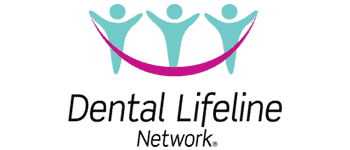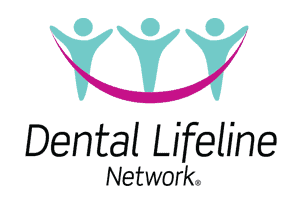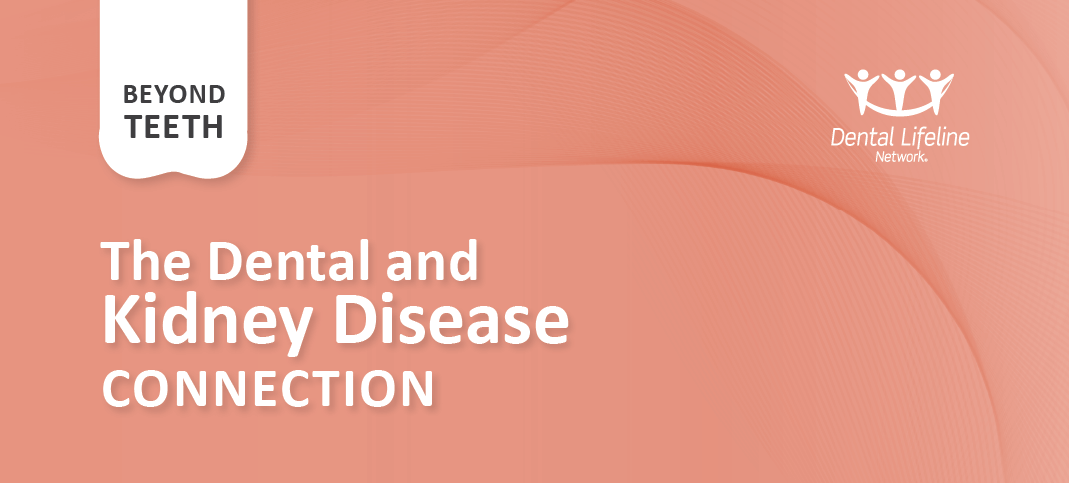Kidney Disease
Dental cavities and gum diseases are bacterial infections that can add to kidney disease complications and other problems.
Kidney disease can lower our ability to fight infections, allowing bacteria that cause cavities and gum disease to spread more easily and harm other parts of the body. And the dental infections can get worse, faster.
Inflammation
A tooth with a cavity or gum disease is infected. Think “strep tooth.” Dental infections trigger inflammation, which means “in flames.” Gums get red and swollen, and might be painful. When one part of the body is dealing with a stubborn infection, like gum disease, not only does that area become inflamed and damaged, but the rest of the body is sent an “alert signal” about the problem. That can increase the inflammation created by kidney disease in other parts of the body.
Chronic and persistent infections, such as dental diseases, can cause chronic and persistent inflammation. That’s dangerous. It can contribute to other complications such as heart problems or make it difficult to manage health conditions such as diabetes.
Dry Mouth
Cavities and gum diseases develop more easily in a dry mouth because saliva helps prevent those problems. Some drugs cause a dry mouth by reducing production of saliva. And for dialysis patients, there can be significant restrictions on the amount you can drink, adding to the problem.
On Dialysis?
You may be considered for a kidney transplant, but serious dental infections can delay, and even prevent, transplants being approved.
Because transplant rejection drugs weaken our defenses against infection, patients generally are required to have infections treated before a transplant to avoid complications. Medicare may cover a dental exam, but not dental treatment that you might need. Your transplant team may be able to suggest possible resources if you cannot personally afford dental treatment. Good oral hygiene and regular dental appointments can help prevent dental problems in the first place.
Any infection, including cavities and gum disease, can be serious, even resulting in hospitalizations. Help prevent problems with excellent oral hygiene.
A blood thinning drug used during dialysis prevents clotting. Some dental procedures may cause bleeding, so it is important to schedule dental appointments on days you do not have dialysis.
Resources
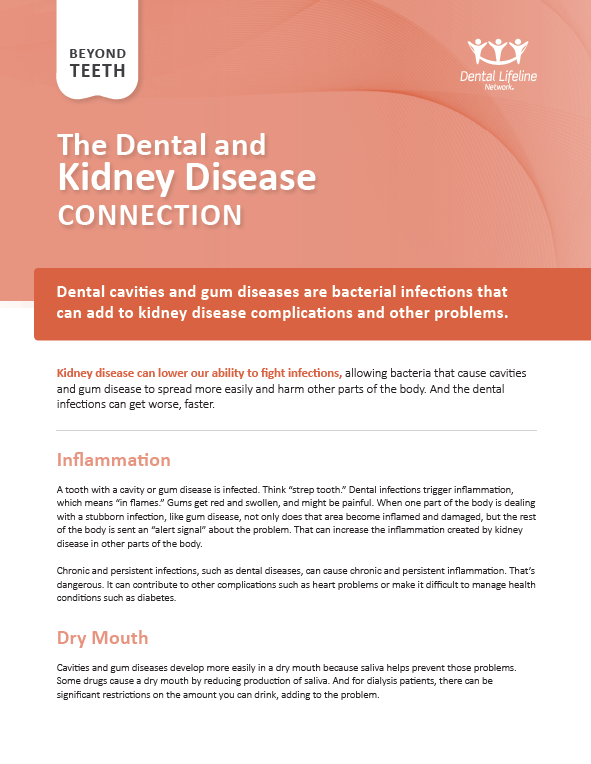
This information is a public service of the Dental Lifeline Network. The content is for educational purposes only. It should not be used as a substitute for the medical advice of one’s health care provider.
Your Input is Important
Please take a quick 2-3 minute survey to help us improve our communications about this important topic.
"*" indicates required fields
